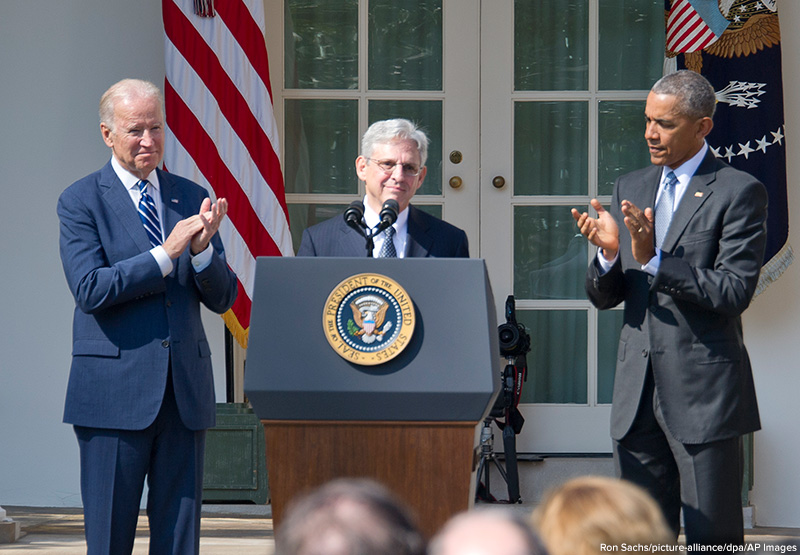
Obama Names SCOTUS Nominee
Last month’s sudden death of Supreme Court Justice Anton Scalia left an opening in the Supreme Court. It also raised a big question over whether the Republican-led Senate would approve the president’s choice or follow through on its vow to block any nominee until after the general election is completed in November.
And the Nominee Is…
On March 16, President Obama announced his choice for the open Supreme Court seat: Merrick Garland. The Chicago-born former prosecutor, 63, currently serves as the Chief Judge of the federal appeals court of Washington, D.C. (often called the Second Highest Court in the Land). In the 1990s, Garland gained national attention for his leading role in the prosecution of Oklahoma City bomber, Timothy McVeigh.
Politically, Garland is considered a moderate (or centrist). Both are broad terms to categorize someone who holds views from both sides, or who tends to be more “middle of the road.” Moderates are generally less aggressive and prone to careful pursuit. Early in his career, he clerked for two prominent judges, one conservative and one liberal. Despite a long judicial record, Garland’s decisions have largely been around cases dealing with regulatory issues and not hot-button topics like same-sex marriage and abortion. Which makes it difficult to determine where he might stand on cases that will reach the Supreme Court.
Does He Have a Chance?
Before the announcement was made, there was much speculation the type of nominee the president might choose. Some thought that he might go with a young, outspoken liberal minority as a way to tip the balance of the Court to the political Left. (Scalia was a staunch Conservative.) Instead, he chose an older, white, male, moderate. Some say this was a deliberate measure that might encourage the Republicans to step back from their pledge to ignore any nominee until after the new president is chosen, review the nominee, and hopefully confirm Garland since he has a moderate case history. If they don’t, and a Democrat wins the presidency in the fall, that president might pick someone far more liberal. But if a Republican wins, he may get to replace Scalia with an equally conservative choice.
Garland has a reputation of gaining praise and respect from Republicans. However, prominent members of the Senate Judiciary Committee have vowed to not hold any hearings, let alone confirm any nominee before the general election. But this is not unusual; it has been 80 years since a vacant seat in the Supreme Court was decided in the last year of a presidential term. The conflict stems from the deliberately general wording of the Constitution that gives the president the authority to nominate a justice and the Senate the authority to confirm or deny that choice.


